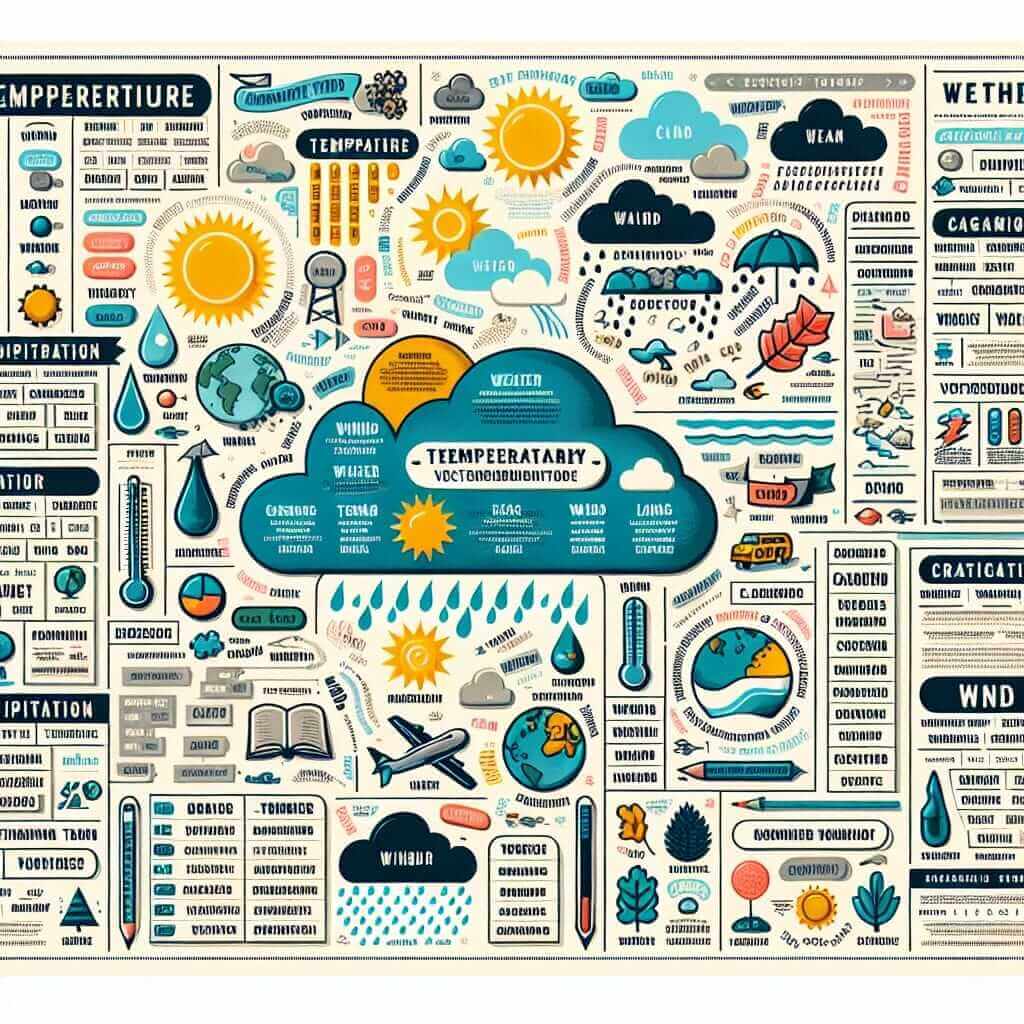As an IELTS instructor with over two decades of experience, I often encounter students who underestimate the importance of casual conversation in the IELTS Speaking test. Believe it or not, even simple questions like “What’s the weather like today?” can play a crucial role in your overall score. This seemingly straightforward question is an opportunity to demonstrate your vocabulary, fluency, and ability to engage in natural English conversation. Let’s delve into how you can turn this simple query into a chance to shine.
Why is Weather Talk Relevant in IELTS Speaking?
The IELTS Speaking test assesses your ability to communicate effectively in English in a variety of contexts. While you may be tempted to focus solely on complex grammar structures and advanced vocabulary, remember that everyday conversation is a vital aspect of communication.
The examiners want to see if you can:
- Understand and respond appropriately to basic questions.
- Engage in small talk naturally.
- Use a range of vocabulary related to common topics like weather.
- Demonstrate fluency and coherence in your speech.
Going Beyond “It’s Sunny”: Expanding Your Weather Vocabulary
Describing the weather effectively goes beyond simply stating “sunny” or “rainy.” Here’s how you can showcase a wider range of vocabulary:
Temperature:
- Instead of “hot”: scorching, sweltering, boiling, humid, stuffy
- Instead of “cold”: chilly, crisp, freezing, frosty, brisk
Precipitation:
- Instead of “raining”: drizzling, pouring, showering, downpour
- Instead of “snowing”: flurrying, blizzard, light snowfall
Wind:
- Instead of “windy”: breezy, blustery, gusty, calm
Other Conditions:
- Instead of “cloudy”: overcast, partly cloudy, clear skies, fog, mist
Crafting Your Response: Sample Answers and Strategies
Let’s look at some sample responses to the question “What’s the weather like today?”:
Basic: “It’s sunny and warm today.”
Improved: “It’s a beautiful day today, with clear skies and plenty of sunshine. It feels quite warm, probably around 25 degrees.”
Advanced: “We’re having a real scorcher today! The sun is out in full force, and there’s not a cloud in the sky. It feels quite humid too, so it’s important to stay hydrated.”
Strategies:
- Be specific: Instead of general terms, use more descriptive words.
- Add details: Mention the temperature, wind conditions, or any other notable weather phenomena.
- Extend your answer: Briefly explain how the weather makes you feel or how it’s affecting people’s activities.

Example from Real IELTS Speaking Tests
While you won’t find “What’s the weather like today?” as a direct question on the official IELTS test, you might encounter it during the initial small talk section (Part 1) or as a way to introduce a topic in Part 2.
For instance, the examiner might ask:
- “Let’s talk about the weather. What kind of weather do you enjoy the most?”
- “Describe a memorable experience you had outdoors on a day with particularly interesting weather.”
Top Tips for Success
- Practice Makes Perfect: Engage in regular English conversations about the weather to improve your fluency and vocabulary.
- Listen to Weather Reports: Pay attention to how native speakers describe the weather on TV, radio, or podcasts.
- Use a Thesaurus: Expand your vocabulary by finding synonyms for common weather terms.
- Don’t Overthink It: Remember, this is a simple question designed to assess your conversational skills. Relax, be yourself, and speak naturally.
Mastering the art of weather talk might seem trivial, but it’s a valuable tool to have in your IELTS arsenal. By using a diverse vocabulary and speaking naturally, you can impress the examiner and boost your overall score. Remember, every word counts, even when discussing the weather!